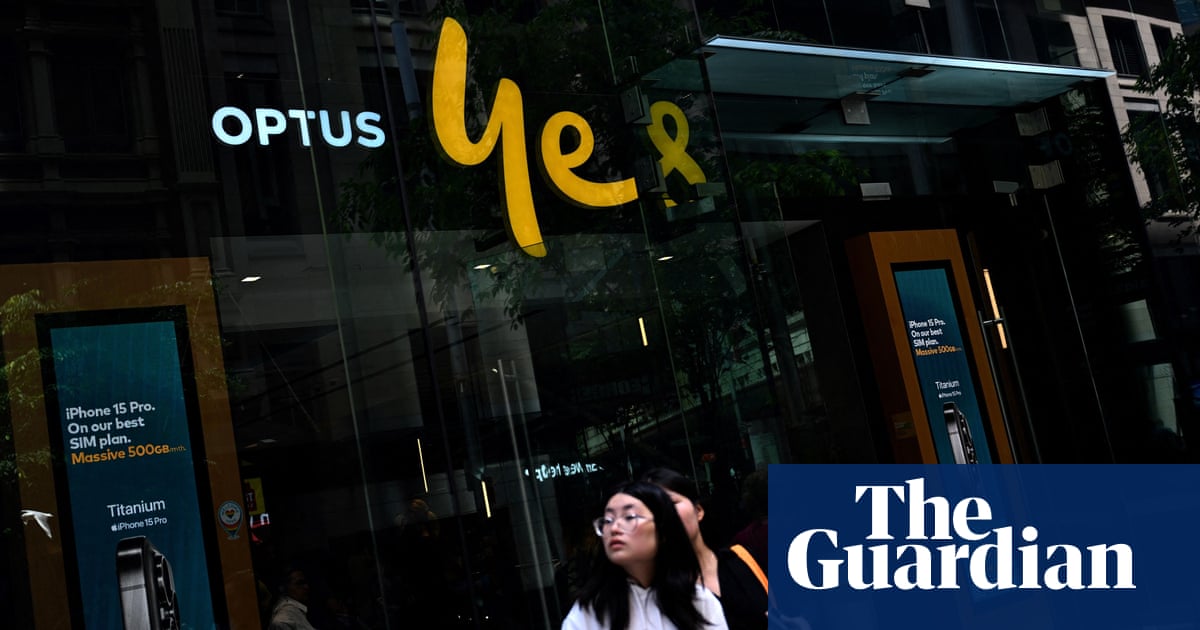
Nearly half the Australian population were left without internet or phone service on Wednesday, when the country’s second largest telecommunications provider crashed and cut off 10 million people from Sydney to Perth and all points in between.
Those affected woke up on Wednesday morning to find they could not log on or make a call, train systems fell down, and businesses could not complete sales because their tap and pay machines were offline.
They were left in limbo for hours as Optus, their provider, struggled to find out what had gone wrong.
The company suggested that customers should think about “finding a family member or neighbour with an alternative device”, not always easy to do in a country where many people live in remote areas where the next house can be a long drive away.
The increasing frustration and anger of customers showed as people began to queue outside the shops of rival providers in the hope of buying a new sim card, or lingered outside libraries in the hope of catching some free wifi.
Optus’s chief executive, Kelly Bayer Rosmarin, eventually called into a Sydney radio station by WhatsApp – presumably using non-Optus wifi – to apologise for the outage and reassure people everything was being done to restore services. The outage lasted until the evening.
With the failure leading to widespread disruption of health, transport and other key government services, the federal communications minister, Michelle Rowland, was moved to intervene and, with some understatement, said that customers were experiencing “a high level of anxiety and frustration”.
All Melbourne metropolitan train services were stopped from about 4.30am because of a communications fault across the train network, reportedly due to the outage.
Metro Trains services started to resume just before 6am but major delays continued throughout the morning peak as services were restored.
Call centres running state government services in New South Wales, which include health, leisure and road and driving services, were affected, along with Victoria’s virtual emergency department. In the Northern Territory, hospital phone lines were cut off by the outage.
The South Australian premier, Peter Malinauskas, said his government would reconsider its contracts with Optus, and the National Retail Association director Rob Godwin said the outage was costing his members “thousands of dollars” in lost sales.
Optus urged customers – especially small businesses – to keep receipts if they wanted to seek compensation, but consumer advocates were not sure whether people would be able to claim much back.
Behind some of the customer anxiety was the feeling that the outage was a repeat of the damaging hack Optus suffered last year, which resulted in the exposure of the personal information of 10 million customers.
Minds turned to a possible repeat cyber-attack, although Bayer Rosmarin said it was “highly unlikely” the outage was caused by a hack, and that an outage of this sort was a “very, very rare occurrence”.
Services began to be restored by Wednesday afternoon and the network was fully up and running again by 6pm, but the exact cause of the outage was still not fully established.
One expert suggested it could have been caused by the same issue that brought down Facebook two years ago. Cloudflare, which tracks a range of activity on the internet, noticed a spike in border gateway protocol (BGP) announcements from Optus coinciding with the time the network went offline.
BGP effectively acts as a roadmap for the internet, and the announcements tell the rest of the internet the easiest way to a particular location.
Matt Tett, the managing director of the network analysis company Enex TestLab, said that while he was not certain of the cause, Optus appeared to have had some failure in routing at 4am that caused an exponential increase in BGP announcements.
The reason why it brought down not just internet but also landline and mobile services, Tett said, was because networks were now IP-based and when the internet protocol network had an issue, “absolutely, it will take down all their systems”.
Facebook, WhatsApp and Instagram went offline for five hours in 2021 due to an issue with BGP.










